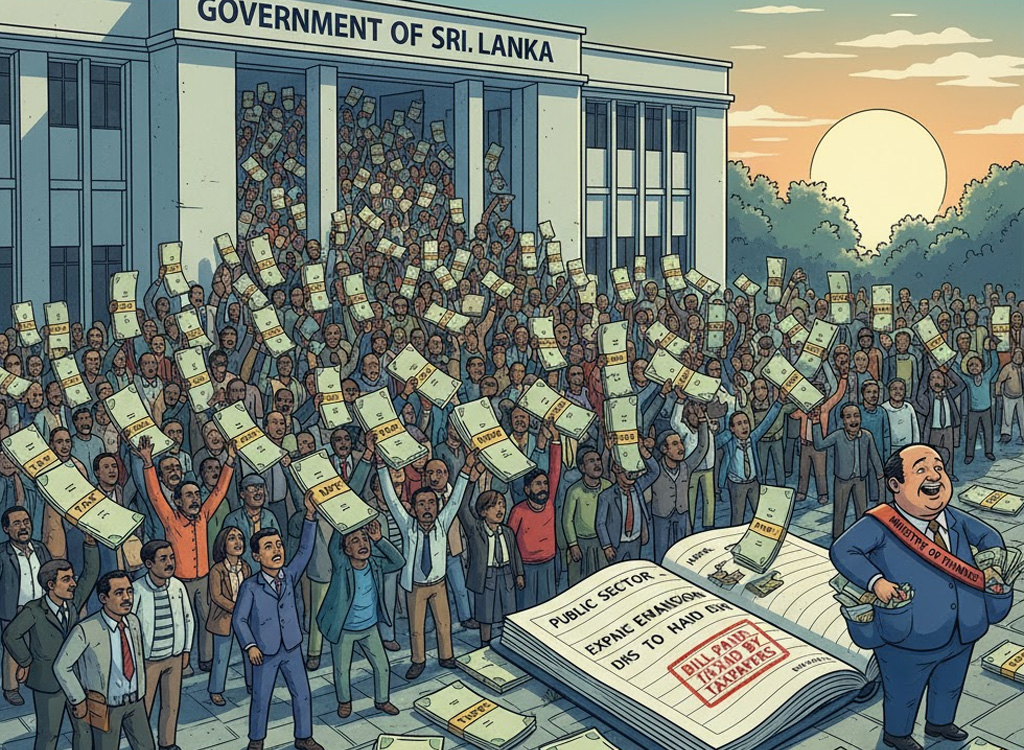Sri Lanka is preparing to hire 60,000 new state workers in the coming years, following the allocation of public funds to recruit 30,000 employees this year.
Minister of Public Administration, Provincial Councils, and Local Government Chandana Abeyratne said that recruitment for key services — including the Sri Lanka Administrative Service, Sri Lanka Engineering Service, Planning Service, and Accountants’ Service — has already begun.
Some 226 positions in the Engineering Service are being filled based on top exam scores, following Cabinet recommendations.
Analysts, however, warn that Sri Lanka’s bloated public service — now around 1.5 million state workers including semi-government agencies — is already unsustainable.
The government’s plan comes amid an ageing population and a shrinking private sector workforce, which must generate tax revenue to fund the ever-expanding public service.
Government employees continue to enjoy lifetime pensions, largely unfunded, placing a heavy burden on taxpayers.
Attempts to encourage women to join the private sector or work abroad have not offset the fiscal pressures created by the state’s growing wage bill.
The recruitment spree coincides with rising economic hardships caused by inflation and rupee depreciation, which have forced millions of Sri Lankans to seek employment overseas.
Analysts have criticized the government’s approach, noting that the International Monetary Fund’s revenue-based fiscal consolidation is flawed, as it fails to address excessive public spending.
Earlier this week, the Cabinet approved hiring 8,547 additional state workers, mainly in the police force, further escalating the public payroll.
Despite claims that recruitment is limited to actual vacancies, critics argue that without a comprehensive review of state agency structures, continued hiring threatens to worsen the country’s fiscal crisis.
Sri Lanka’s citizens are already bearing the cost of high taxes on vehicles, building materials, and households, while the government continues to expand an overstretched public service.
Analysts warn that if the pace of hiring outstrips retirements, future generations will struggle under the burden of taxes and unfunded pensions, potentially fueling further outmigration.
Since the 2022 default, the government has relied heavily on taxation to reduce deficits and service debt, yet much of the state’s revenue continues to fund salaries and pensions, leaving little room for productive investment.











Leave a comment